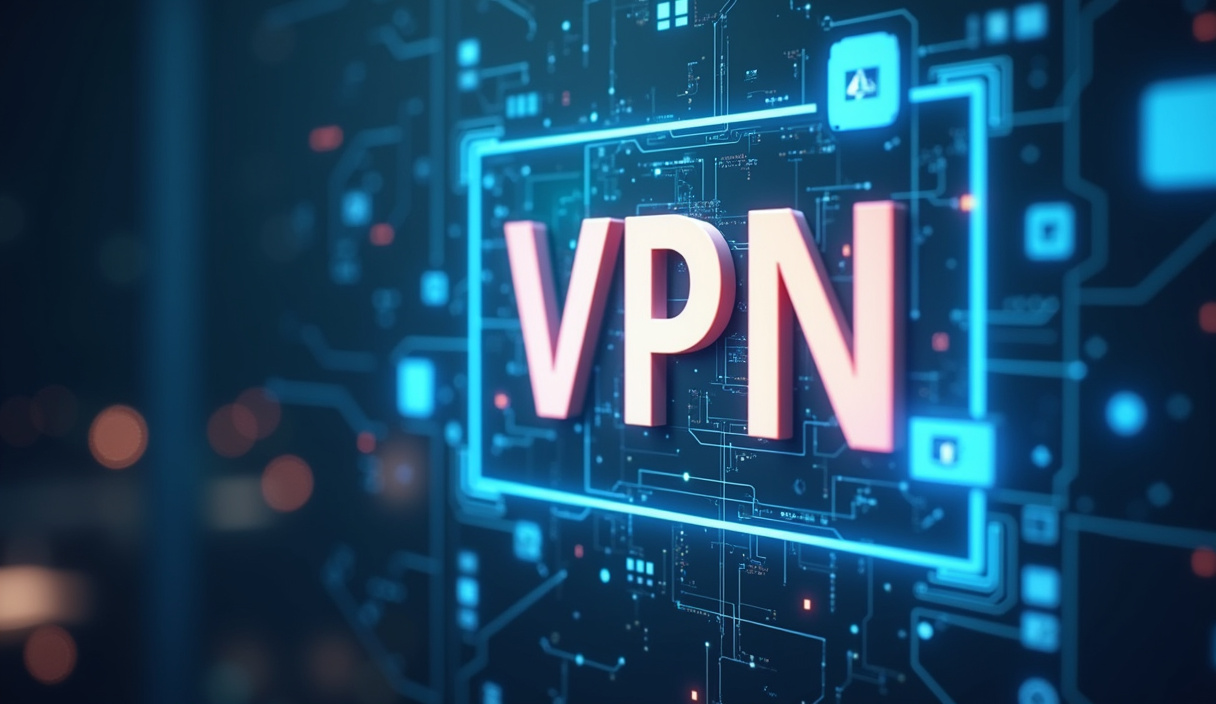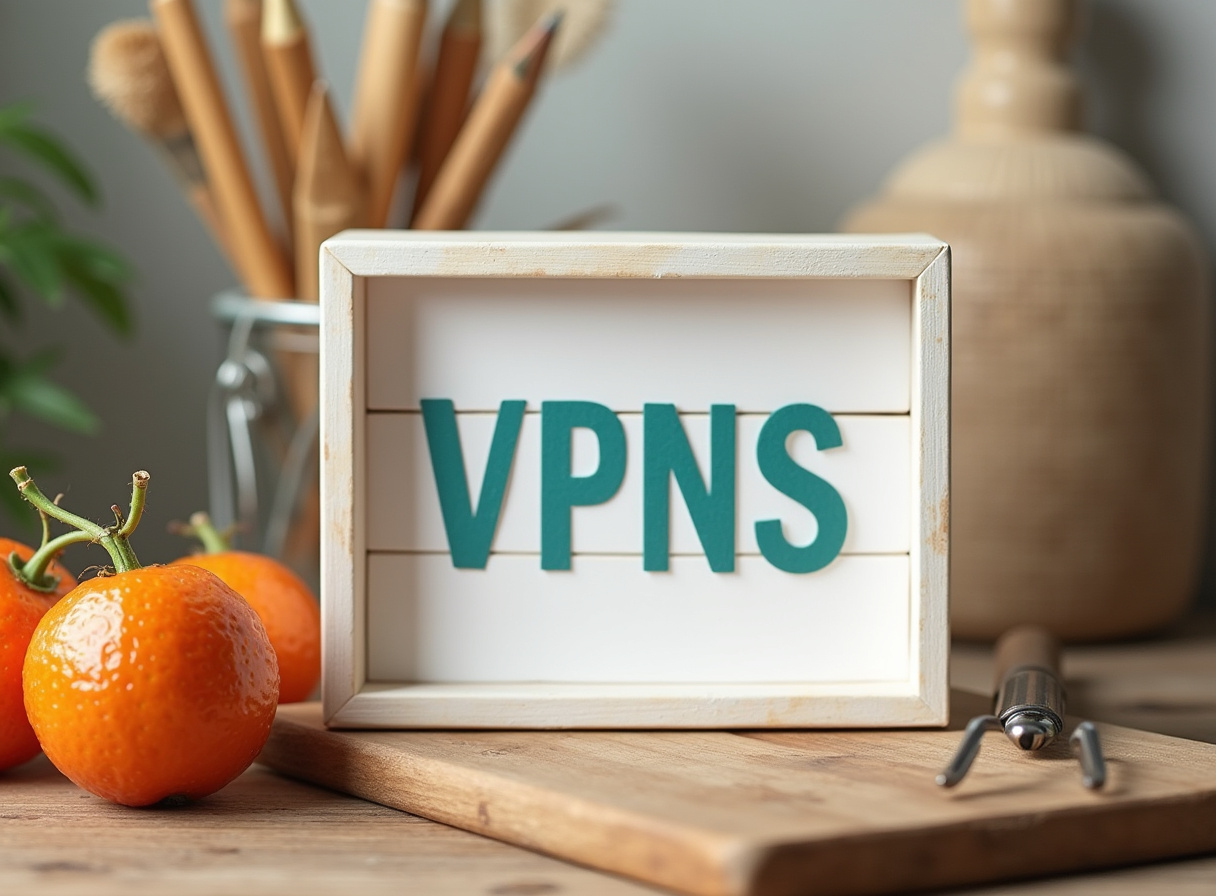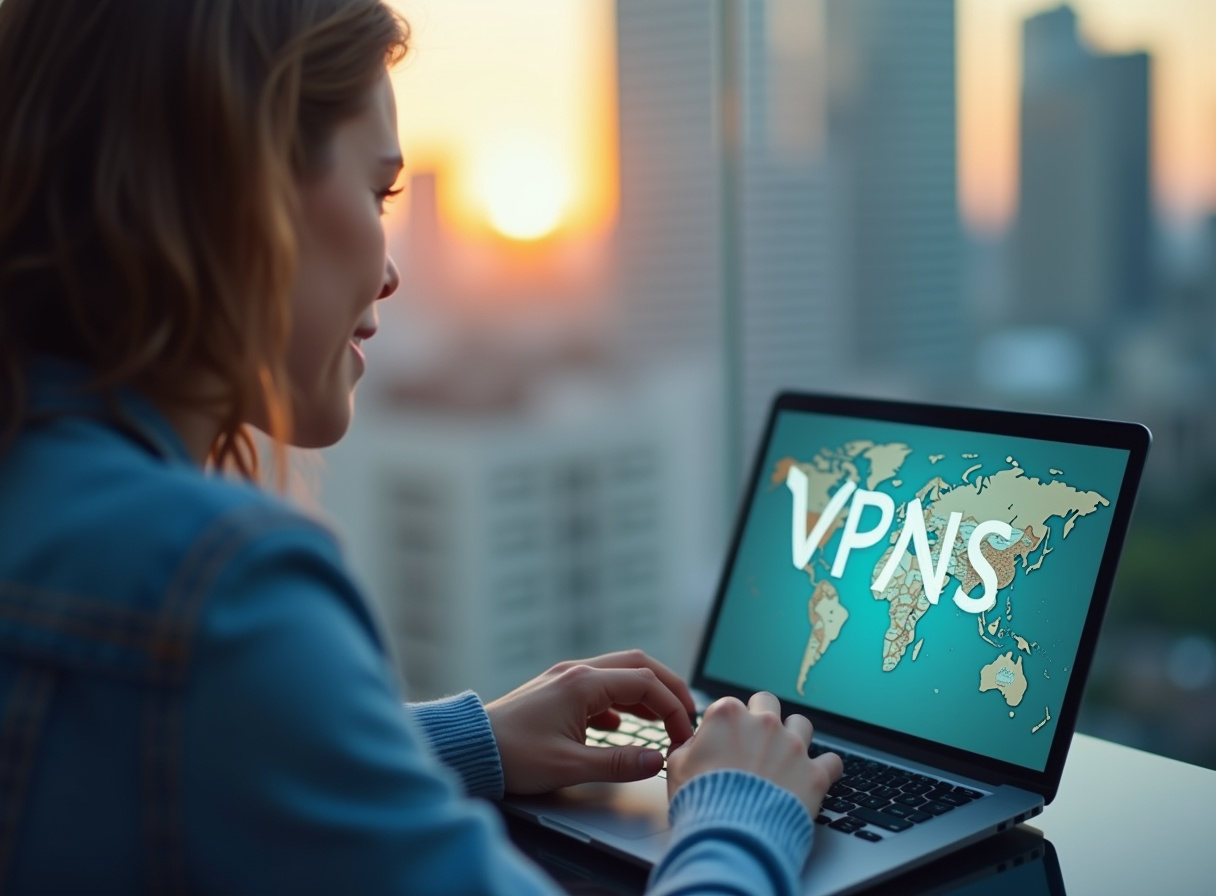VPNs for Bloggers: Secure Your Content and Identity
Table of Contents
content security
In today’s interconnected world, bloggers face an increasing number of threats, ranging from content theft and censorship to surveillance and identity theft. For bloggers, their website is not just a hobby but an essential source for income, personal expression, and professional branding. Safeguarding this digital storefront is paramount.
A Virtual Private Network (VPN) is an indispensable tool for bloggers seeking to bolster their online protection strategy. It offers a multi-layered approach to content security, identity protection, and privacy. By encrypting internet traffic, masking IP addresses, and providing secure connections, a VPN acts as a powerful shield against various online threats.
This comprehensive guide delves into the critical role of VPNs for bloggers, examining how they enhance content security, safeguard identities, and ensure privacy in an increasingly vulnerable digital landscape. One of the primary advantages of using a VPN for bloggers is the enhanced it provides. Copyright infringement and content theft are severe issues for bloggers who invest time and resources into creating original material.
A VPN can help mitigate these risks by encrypting your internet connection, making it more difficult for malicious actors to intercept your data or track your online activities. This is particularly important when accessing your blog's backend, where sensitive information like usernames, passwords, and unpublished content are at risk. By using a VPN, you can secure your connection to your blog's servers and encrypt all data transferred between your computer and the server.
This encryption makes it significantly harder for hackers to access your data, even if they manage to intercept it. Imagine crafting a meticulously researched blog post, only to find it plagiarized on another website. A VPN would not prevent the act of plagiarism itself.
However, it secures your connection while you are working on your content and prevents malicious access to it while stored in your hosting servers. Securing your draft work is a crucial step in protecting your work. VPNs are crucial for securing the process of backing up your content and for ensuring your blog isn't targeted and scraped for content.
Furthermore, a VPN can protect your blog from Distributed Denial of Service (DDoS) attacks, which can overwhelm your server with traffic and take your site offline. While a VPN cannot completely prevent DDoS attacks, it can make it more difficult for attackers to target your server directly by masking your IP address. This added layer of protection can help keep your blog online and accessible to your readers.
If a botnet attempts to flood your server with requests, identifying the actual source becomes more challenging when you’re using a VPN, potentially mitigating the attack’s effectiveness. VPNs can be chosen to provide advanced features, such as malware protection and ad blocking, which provide an additional layer of security for both you and your visitors. Malware protection can prevent malicious software from infecting your computer or your blog, while ad blocking can prevent malicious ads from being displayed on your site.
This reduces exposure for both the blogger and their audience. Bloggers looking to should consider using a VPN to encrypt their connection when accessing their hosting account. Your hosting account contains sensitive information about your blog and your personal details.
Securing access to this account is essential for protecting your blog from unauthorized access. Think of managing your blog hosting as accessing a bank vault. The VPN acts as an armored car, ensuring that the transportation of sensitive data (username, password, financial details) is encrypted and shielded from potential eavesdroppers.
Therefore, a VPN is a fundamental and necessary tool in a blogger’s content security arsenal in the current digital landscape.
identity protection
Beyond content protection, a VPN plays a vital role in for bloggers. Bloggers often share personal information and opinions online, making them vulnerable to online harassment, stalking, and even identity theft. The very act of expressing oneself online opens avenues for malicious actors to target individuals based on their views or online behavior.
By masking your IP address and encrypting your internet traffic, a VPN can help protect your identity and prevent malicious actors from tracking your online activities. Your IP address is a unique identifier that can be used to pinpoint your location and identify you online. When you connect to a VPN server, your IP address is replaced with the IP address of the VPN server, making it difficult for anyone to track your online activities back to you.
For example, consider a blogger who writes about social justice issues. Without a VPN, their IP address could be used to determine their physical location, potentially exposing them to threats or harassment. With a VPN, their true location is masked, providing a crucial layer of protection.
This is particularly important for bloggers who write about controversial topics or express strong opinions online. A VPN can help protect you from doxxing, which is the act of revealing someone's personal information online without their consent. By masking your IP address, it becomes more difficult for people to find your address, phone number, or other personal information.
Doxing can have severe consequences. Someone might reveal your address, leading to physical threats or targeted harassment. A VPN makes it significantly harder to obtain this identifying information by obscuring your IP address.
Strong measures are necessary for bloggers who rely on revenue streams through advertising or affiliate marketing. Cybercriminals may attempt to impersonate bloggers to fraudulently obtain payments, redirect affiliate links, or spread misinformation that could harm the blogger's reputation. Imagine a scenario where a cybercriminal impersonates you to redirect affiliate links, stealing your commissions.
By securing your online activity with a VPN, you reduce the risk of your login credentials being compromised, which is often the first step in such impersonation attacks. A VPN enhances the security of financial transactions related to your blog, such as processing payments or managing your bank accounts. By encrypting your internet connection, a VPN can prevent hackers from intercepting your financial data, such as your credit card number or bank account details.
Secure financial practices are vital for maintaining the trust of your audience and protecting your livelihood. Without a VPN, sensitive financial information transmitted over public Wi-Fi networks is particularly vulnerable. The encryption provided by a VPN forms a safe tunnel for this data, preventing eavesdropping.
Bloggers should utilize strong, unique passwords for blog logins, hosting accounts, and email, and be mindful of phishing attempts designed to steal personal information. A VPN serves as a foundational layer of security, reducing vulnerabilities across multiple access points. The ability to establish secure connections from any location is especially important.
Bloggers often have to connect to public Wi-Fi networks, such as those in cafes or airports, which are notoriously insecure and vulnerable to hacking. By using a VPN, you can encrypt your internet traffic and protect your data, even when you are connected to a public Wi-Fi network. Consider the next time you work at your blog while at a local coffee shop.
A VPN would protect you from a hacker on the same network from viewing your data. This is also crucial when using unvetted networks, or ones that you don’t own and control. The use of a VPN ensures that the connection to your content management system (CMS) remains secure no matter where the blogger is accessing it from.
This is especially important in areas where internet access is monitored or restricted.
Privacy VPN
solutions are essential for bloggers who value their online freedom and anonymity. In many countries, governments and internet service providers (ISPs) monitor internet traffic and censor content. This can create a chilling effect on free expression, as bloggers may self-censor their content to avoid repercussions.
A VPN can help you bypass these restrictions and access blocked websites and content. By connecting to a VPN server in a different country, you can mask your location and appear to be browsing from that country. This allows you to access content that may be blocked in your current location.
For example, if a blogger in a country with strict media censorship wants to access independent news sources or social media platforms, a VPN can allow them to do so without being detected. It's not just about accessing blocked content; it's about maintaining the ability to research and report freely. Bloggers who write about sensitive topics such as politics, social issues, or human rights may face censorship or surveillance from their governments.
A VPN can help protect your privacy and freedom of expression by masking your IP address and encrypting your internet traffic. This makes it more difficult for governments or ISPs to monitor your online activities or censor your content. The encryption transforms your data into an unreadable format, preventing eavesdropping.
At the same time, the masking of your IP address makes it much harder to trace your online activity back to your true location and identity. A VPN helps to safeguard the blogger's right to express themselves freely without fear of repercussions. Anonymity helps protect bloggers from potential legal challenges or harassment resulting from their content.
Sometimes, saying what needs to be said requires a layer of protection. Without a VPN, a blogger's identity and location could be easily discovered, making them vulnerable to legal threats or online harassment campaigns. In addition to protecting you from government censorship, a VPN can also protect you from ISP tracking.
ISPs collect data about your browsing habits, which they can use to target you with advertising or to sell to third parties. By encrypting your connection and masking your IP address, a VPN prevents your ISP from tracking your online activities and sharing your data with third parties. This is particularly important for bloggers who value their protection and don't want their personal information to be collected and used for commercial purposes.
The use of a VPN is a statement in itself: that you value your privacy and are taking steps to protect it. It's a proactive measure that puts you in control of your online data. Many VPN services also offer additional privacy features, such as DNS leak protection and a kill switch, which further enhance your privacy and security.
DNS leak protection prevents your DNS requests from being exposed, while a kill switch automatically disconnects your internet connection if the VPN connection drops, preventing your IP address from being exposed. Bloggers operating in competitive niches might also find a VPN useful for researching competitors anonymously. A VPN prevents your competitors from tracking your research activities back to you, giving you a tactical advantage.
This is especially relevant for bloggers working in areas that may be subject to industrial espionage. Finally, bloggers who conduct interviews or communicate with sources who require anonymity can use a VPN to protect the privacy of their sources. By encrypting your communications, a VPN ensures that your sources are communicating securely and confidentially.
VPNs for Services: Enhancing Security on Subscription Platforms
Choosing the right VPN for your blogging needs involves careful consideration of several key factors. Not all VPNs are created equal, and selecting one that aligns with your specific requirements is crucial for optimal security and performance. Start by evaluating the VPN's security protocols.
Look for VPNs that use strong encryption protocols such as AES-256, which is considered military-grade encryption. These protocols ensure that your data is securely encrypted and protected from unauthorized access. Also, check the VPN's logging policy.
A reputable VPN should have a strict no-logs policy, meaning that it does not collect or store any information about your browsing activity, IP address, or connection timestamps. This ensures that your online activities remain private and anonymous. Read the VPN's privacy policy carefully to understand what data it collects and how it uses that data.
The location of the VPN provider is another important factor to consider. VPN providers based in countries with strong privacy laws, such as Switzerland or Panama, are generally considered to be more trustworthy than those based in countries with weaker privacy laws or those that are part of surveillance alliances like the 14 Eyes. These alliances allow member countries to share intelligence data, which could compromise your privacy.
Server location and speed are also crucial considerations. Choose a VPN with a wide network of servers located in various countries. This allows you to bypass geo-restrictions and access content from different regions.
Also, check the VPN's speed and performance. A slow VPN can significantly impact your browsing experience, making it difficult to upload content, conduct research, or interact with your audience. Look for VPNs that offer fast and reliable connections, ideally with unlimited bandwidth.
A fast VPN connection can enhance your productivity and ensure a seamless online experience. Another critical factor is the VPN's compatibility with your devices and operating systems. Ensure that the VPN is compatible with your computer, smartphone, and tablet, as well as with your preferred operating system.
Also, check whether the VPN offers dedicated apps for different platforms, such as Windows, macOS, iOS, and Android. Easy-to-use apps can simplify the process of connecting to the VPN and managing your settings. Consider the user interface of the VPN app.
A user-friendly interface can make it easier to connect to servers, adjust settings, and manage your account. A VPN with a complicated or confusing interface can be frustrating to use. Look for VPNs that offer 24/7 customer support.
If you encounter any issues with the VPN, you should be able to get help from customer support representatives who are available around the clock. Check the VPN's website or read online reviews to assess the quality of its customer support. Check if the VPN provides support via live chat, email, or phone.
Price is also a factor to consider, but it should not be the only factor. While free VPNs may seem appealing, they often come with limitations, such as slower speeds, limited bandwidth, and intrusive advertising. Also, free VPNs may not be as secure as paid VPNs, and some may even collect and sell your data to third parties.
Invest in a reputable paid VPN that offers a good balance of security, performance, and price. Research the VPNs price plans and payment options before making your purchase decision.
content security
Beyond the technical aspects, understanding best practices for using a VPN as a blogger can significantly enhance its effectiveness. While a VPN provides a strong layer of security, it's not a silver bullet. Combining it with other security measures creates a robust defense against online threats.
Always ensure your VPN is active before connecting to the internet, especially when using public Wi-Fi. This provides immediate protection against potential eavesdropping and data interception. Make it a habit to activate your VPN every time you browse, work, or engage in any online activity.
Regularly update your VPN software. Like any software, VPNs require updates to address security vulnerabilities and improve performance. Enable automatic updates to ensure your VPN is always running the latest version.
This protects you from newly discovered threats and ensures that your VPN is performing optimally. Be cautious of suspicious links and phishing emails. A VPN cannot protect you from your own mistakes.
Be vigilant about clicking on suspicious links or opening attachments from unknown senders. Phishing emails can trick you into revealing sensitive information, such as your login credentials or financial details. Use strong and unique passwords for all your online accounts.
A VPN protects your internet connection, but it does not protect you from weak passwords. Use a password manager to generate and store strong, unique passwords for each of your accounts. Enable two-factor authentication (2FA) wherever possible.
2FA adds an extra layer of security to your accounts by requiring a second verification method, such as a code sent to your smartphone, in addition to your password. This makes it much more difficult hackers to access your accounts, even if they manage to steal your password. Educate yourself about online security threats and best practices.
Staying informed about the latest threats and security measures can help you make better decisions about protecting your online privacy and security. Read security blogs, follow security experts on social media, and attend security conferences to stay up-to-date. Consider using a password manager to protect and keep track of your many passwords.
A password manager will secure your passwords and help you make better security choices. Review your VPN settings regularly and make sure that they are configured correctly. Check that your VPN is using strong encryption protocols, that DNS leak protection is enabled, and that the kill switch is functioning properly.
These settings can help protect your privacy and security in case of a connection failure. Remember that no VPN is perfect. Every VPN has its strengths and weaknesses, and some VPNs may be more suitable for specific purposes than others.
It’s important to choose a VPN that meets your specific needs as a blogger, and you may need to try different VPNs before finding one that you are happy with. If your intent is to protect personal or proprietary information, ensure that the provider has been independently audited by a third party. These audits can reveal possible shortfalls in real world security and demonstrate the value of the provider.
By following these best practices, bloggers can leverage the power of VPNs to enhance their , , and online , creating a safer and more secure environment for their work and their audience. Integrating these practices into your daily workflow ensures that your VPN is not just a tool, but a vital component of your overall digital safety strategy.
Stay Updated
Get the latest VPN news, tips, and exclusive deals to your inbox.




